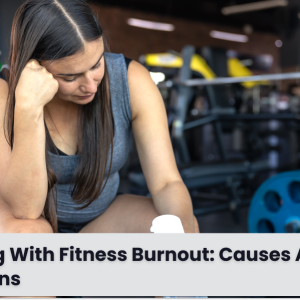
Does Drinking Water Really Help You Lose Weight?
In the quest for weight loss, countless tips and tricks circulate, often leading to confusion about what truly works. One commonly suggested strategy is increasing water intake. While drinking water is essential for overall health, you may wonder whether it can genuinely help you shed those extra pounds. This blog will explore the relationship between water consumption and weight loss, backed by scientific evidence and practical advice.
1. The Role of Water in Weight Loss
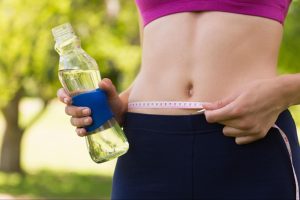
Water is not a magic potion for weight loss, but it plays several crucial roles in the body that can support your weight loss efforts:
- Appetite Control: Drinking water before meals can help you feel fuller, reducing the likelihood of overeating. A study published in the journal Obesity found that participants who drank water before meals consumed fewer calories overall, leading to weight loss.
- Caloric Replacement: Opting for water instead of high-calorie beverages, like sugary sodas, fruit juices, or alcohol, can significantly reduce your daily caloric intake. A single 12-ounce sugary soda contains about 150 calories; if you replace that with water, you could save over 1,000 calories a week!
- Metabolism Boost: Drinking water may temporarily boost your metabolism. Research has shown that drinking about 500 milliliters (17 ounces) of water can increase metabolic rate by approximately 30% for about 30-40 minutes, leading to more calories burned.
2. Hydration and Exercise Performance
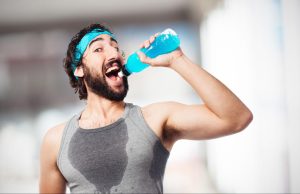
Staying hydrated is crucial for optimal exercise performance. Proper hydration enhances physical performance, allowing you to engage in more intense workouts, which can aid in weight loss. When you’re well-hydrated, your body can maintain its endurance, strength, and energy levels.
Consider these tips for hydration during workouts:
- Drink water before, during, and after exercise: Aim to drink water regularly throughout the day, especially if you plan to exercise. Hydration should not only occur during workouts but also before and after to replenish fluids lost through sweat.
- Monitor your hydration status: Pay attention to signs of dehydration, such as dry mouth, fatigue, or dark yellow urine. Keeping your body hydrated can enhance your workout efficiency and, ultimately, weight loss.
3. The Science Behind Water and Weight Loss

Several studies support the idea that drinking water can assist with weight loss:
- A study published in The American Journal of Clinical Nutrition found that drinking water before meals led to greater weight loss in older adults over a 12-week period compared to those who did not.
- Another study in Frontiers in Nutrition showed that increasing water intake was associated with a reduction in body weight and fat mass among overweight and obese participants.
While these studies indicate a positive relationship between water consumption and weight loss, it is essential to remember that individual results may vary. Drinking water alone is unlikely to result in significant weight loss without a balanced diet and regular exercise.
4. Hydration and Metabolism
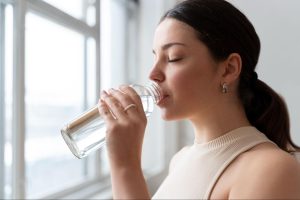
Water’s impact on metabolism is an area of ongoing research. Studies suggest that drinking cold water may require your body to expend energy to warm it to body temperature, resulting in a slight increase in calorie expenditure. However, the effect is relatively small and should not be relied upon solely for weight loss.
5. Practical Tips for Increasing Water Intake
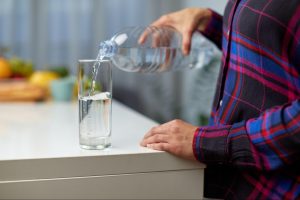
If you want to leverage the benefits of water for weight loss, consider the following practical tips to help you increase your daily intake:
- Keep a water bottle handy: Carry a reusable water bottle with you throughout the day to remind yourself to drink more water.
- Set reminders: Use your phone or a hydration app to remind you to drink water regularly.
- Infuse your water: If you find plain water boring, try infusing it with fruits, herbs, or vegetables. Add slices of lemon, cucumber, mint, or berries to enhance flavor without added calories.
- Track your intake: Keep a log of your daily water consumption to ensure you’re meeting your hydration goals. Aim for at least 8-10 glasses (about 2-2.5 liters) per day, adjusting for activity level and climate.
6. Hydration Myths to Avoid

While increasing water intake can aid weight loss, it’s important to be mindful of common myths:
- Drinking excessive amounts of water does not guarantee weight loss: While staying hydrated is essential, drinking excessive amounts of water won’t magically lead to weight loss. Balance is key.
- Water alone won’t lead to significant weight loss: While drinking water can support weight loss, it should be part of a comprehensive approach that includes a healthy diet and regular exercise.
7. Listening to Your Body’s Signals

It’s essential to listen to your body’s hydration signals. Thirst is a natural indicator that you need water. Pay attention to your body’s cues and drink when you feel thirsty, even if you’re not strictly counting glasses.
Summary
In summary, drinking water can indeed support weight loss efforts in various ways. It can help control appetite, replace high-calorie beverages, and enhance exercise performance. However, it’s important to remember that water alone is not a weight-loss solution. To achieve and maintain weight loss, a balanced diet and regular physical activity are essential. By incorporating more water into your daily routine and making mindful choices about what you consume, you can take positive steps toward your weight loss goals while promoting overall health and well-being. So, raise your glass and toast to hydration—it may just be the simplest and most effective tool in your weight loss arsenal!


